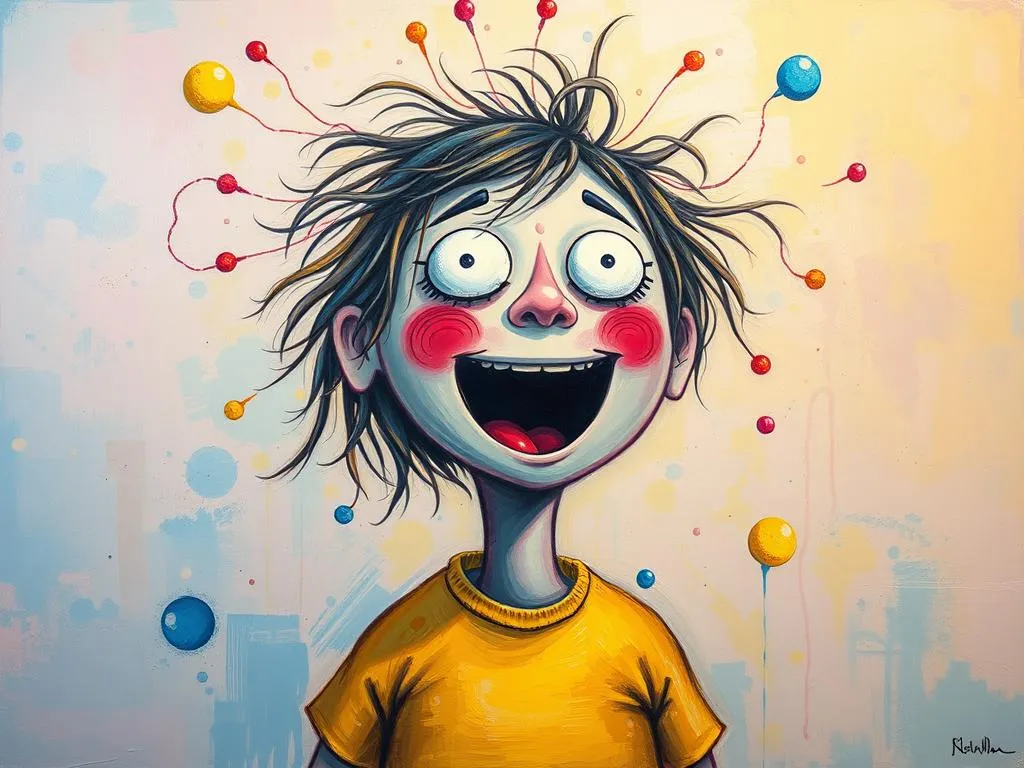
Introduction
Dreams have long fascinated humanity, serving as windows into our subconscious minds. Among the myriad of dream scenarios, being hit in the head stands out as a particularly jarring experience. This type of dream often elicits strong emotions and leaves dreamers feeling unsettled upon waking. The significance of such dreams invites exploration into their deeper meanings, shedding light on our inner conflicts, fears, and unresolved issues. Understanding the symbolism behind being struck in the head can not only provide insight into our mental and emotional states but also offer guidance for personal growth and self-reflection.
Symbolism and Meaning
The head is a powerful symbol in dreams, often representing our thoughts, intellect, and overall mental state. When dreaming of being hit in the head, one must consider the impact of this action on various levels. For instance, this dream could symbolize a sudden realization or an awakening of sorts. It may suggest that a particular thought or belief has been challenged or disrupted, prompting the dreamer to rethink their perspective.
From another angle, being struck in the head can represent vulnerability. The head is a delicate and vital part of the body, and to dream of it being hit may indicate feelings of being overwhelmed or attacked in waking life. This could reflect a situation where the dreamer feels under pressure, perhaps due to criticism or external expectations. In this context, the dream serves as a metaphor for the emotional and mental strain the individual is experiencing.
Moreover, the act of being hit can also symbolize internal conflict. Dreamers might be grappling with unresolved issues or past traumas that are surfacing in their subconscious. The intensity of the impact in the dream—whether it is a sharp blow or a more subdued tap—can provide further insight into the severity of these conflicts. A harsh blow might suggest a significant issue that needs urgent attention, while a lighter impact could indicate more subtle, yet persistent, concerns.
Additionally, cultural interpretations can influence the meaning of such dreams. In some traditions, being hit in the head can signify a warning or a signal to pay attention to one’s thoughts and beliefs. It may be a call to confront aspects of oneself that have been ignored or overlooked, urging the dreamer to engage in self-examination.
Key Scenarios and Variations
The context and specifics of a dream can dramatically alter its interpretation. For instance, if a person dreams of being hit in the head by a friend or loved one, it might signify feelings of betrayal or disappointment in that relationship. This scenario can indicate that the dreamer feels emotionally wounded, perhaps due to a perceived slight or miscommunication. Alternatively, it might indicate an underlying desire for honesty and transparency in the relationship, suggesting that the dreamer is seeking clarity.
Conversely, if the dream involves an unknown assailant, the interpretation could shift. This scenario may highlight feelings of vulnerability and fear, indicating that the dreamer feels threatened or attacked in some aspect of their life. The anonymity of the attacker suggests that the source of distress may be external and beyond the dreamer’s control, such as workplace stress or societal pressures.
Another variation to consider is the setting of the dream. If the dream occurs in a familiar place, it might suggest that the issues being confronted are rooted in the dreamer’s personal life. However, if the dream takes place in an unfamiliar location, it could indicate that the challenges faced are new and uncharted, leading to feelings of uncertainty and confusion.
Furthermore, the response of the dreamer in the dream can also provide insight. If the dreamer fights back or tries to escape, it may suggest a proactive approach to addressing their fears or conflicts in waking life. On the other hand, if the dreamer remains passive or helpless, it may reflect a sense of powerlessness in dealing with challenges, indicating a need for empowerment and self-advocacy.
Real-Life Connections and Takeaways
Reflecting on dreams of being hit in the head can offer valuable insights into one’s waking life. Dreamers are encouraged to examine their current situations and relationships, identifying any areas where they feel challenged or threatened. It is crucial to consider whether there are unresolved conflicts or emotions that need to be addressed.
For practical self-reflection, individuals might ask themselves questions such as: Am I feeling overwhelmed by external pressures? or Do I have unresolved issues in my relationships that require attention? Journaling about these dreams and the feelings associated with them can also facilitate deeper understanding. Writing down thoughts and emotions can help clarify the messages the subconscious is attempting to convey.
Moreover, engaging in mindfulness practices can be beneficial. Techniques such as meditation or deep-breathing exercises can help ground individuals and provide clarity. When faced with feelings of vulnerability or conflict, these practices can offer a sense of calm and perspective, enabling dreamers to navigate their challenges more effectively.
Lastly, it is essential to remember that dreams often serve as mirrors reflecting our inner worlds. By paying attention to the symbols and feelings present in dreams of being hit in the head, individuals can embark on a journey of personal discovery and growth. Rather than shying away from the discomfort these dreams may bring, embracing them as opportunities for self-exploration can lead to profound insights and positive change.
In conclusion, dreams of being hit in the head carry significant meaning, urging dreamers to confront their fears, vulnerabilities, and unresolved issues. By acknowledging the symbolism behind such dreams and connecting them to real-life experiences, individuals can gain a deeper understanding of themselves and their emotional landscapes. As you reflect on your own dreams, consider how they resonate with your waking life, and allow them to guide you toward personal transformation and empowerment.







